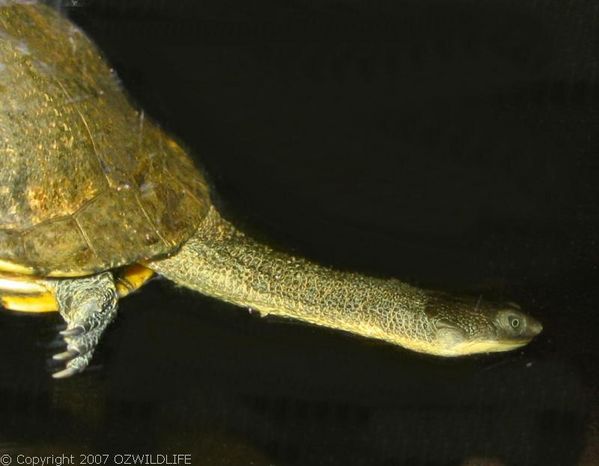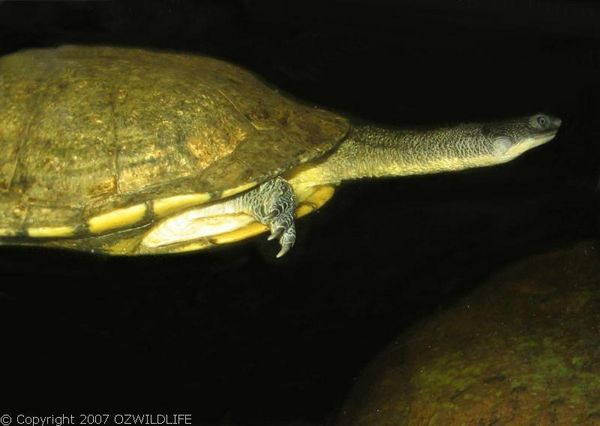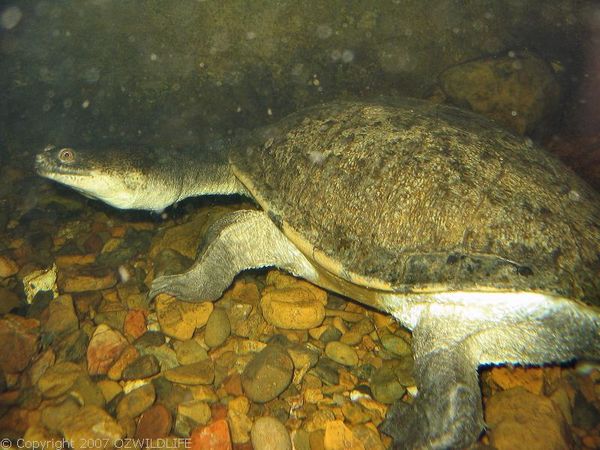|

Eastern Snake-necked Turtle photographed in captivity at Walkabout Creek, Brisbane Forest Park.
Image by ozwildlife - Some rights reserved.
|

Eastern Snake-necked Turtle photographed in captivity at Walkabout Creek, Brisbane Forest Park.
Image by ozwildlife - Some rights reserved.
|

Photographed in captivity at Walkabout Creek, Brisbane Forest Park.
Image by ozwildlife - Some rights reserved.
|
|
|
REPTILE FACTS |
Description
The most obvious identifying feature of the Eastern Snake-necked Turtle is the long neck. Its shell is a brown color with black edges. The underside of the shell is lighter in color and has black lines. The hatchlings are often brightly marked with black and orange on underside but this fades as they get older.
Other Names
Stinker
Size
20cm to 30cm
Habitat
swamps and slow moving waters in eastern Australia
Food
insects, worms, tadpoles, frogs and small fish
Breeding
The female Eastern Snake-necked Turtle lays about 10-20 eggs in late summer. The young hatch after 3-5 months and make their way to the water. Many of the eggs and young are eaten by water rats, lizards and birds.

Credits:
Map is from Atlas of Living Australia website at https://biocache.ala.org.au licensed under Creative Commons Attribution 3.0 License.
Classification
| Class: | Reptilia | | Order: | Testudines | | Family: | Chelidae | | Genus: | Chelodina | | Species: | longicollis | | Common Name: | Eastern Snake-necked Turtle |
Relatives in same Genus
New Guinea Snake-necked Turtle (C. novaeguineae)
Oblong Turtle (C. oblonga)
|
|

